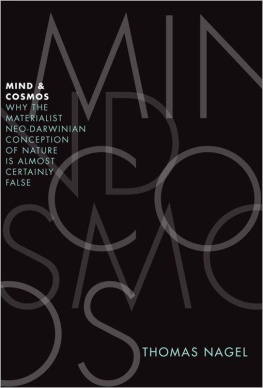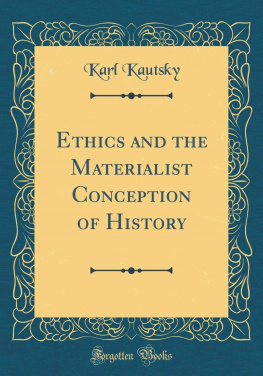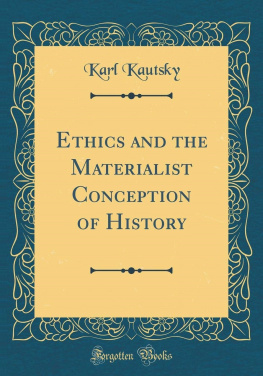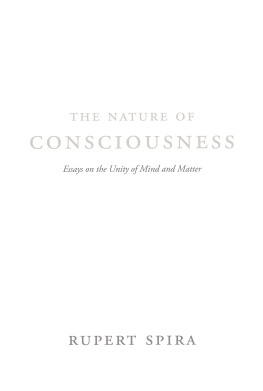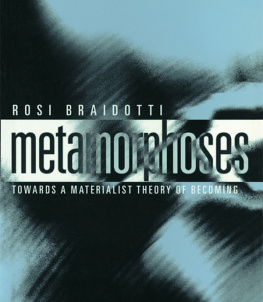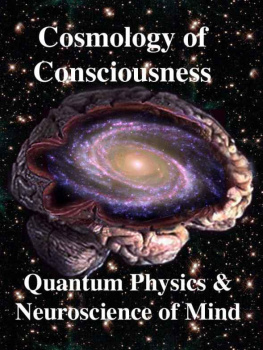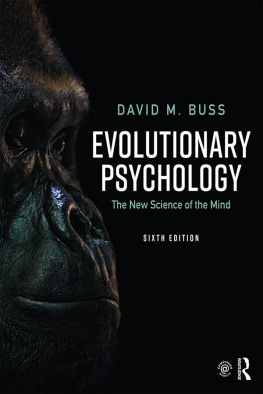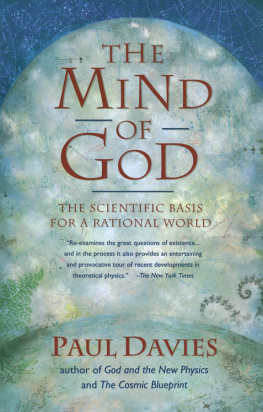MIND AND COSMOS
BY THE SAME AUTHOR
The Possibility of Altruism
Mortal Questions
The View from Nowhere
What Does It All Mean?
Equality and Partiality
Other Minds
The Last Word
The Myth of Ownership (with Liam Murphy)
Concealment and Exposure
Secular Philosophy and the Religious Temperament
MIND AND COSMOS
Why the Materialist Neo-Darwinian Conception
of Nature Is Almost Certainly False
Thomas Nagel


Oxford University Press is a department of the University of Oxford.
It furthers the Universitys objective of excellence in research,
scholarship, and education by publishing worldwide.
Oxford New York
Auckland Cape Town Dares Salaam Hong Kong Karachi
Kuala Lumpur Madrid Melbourne Mexico City Nairobi
New Delhi Shanghai Taipei Toronto
With offices in
Argentina Austria Brazil Chile Czech Republic France Greece
Guatemala Hungary Italy Japan Poland Portugal Singapore
South Korea Switzerland Thailand Turkey Ukraine Vietnam
Oxford is a registered trade mark of Oxford University Press in the UK
and certain other countries.
Published in the United States of America by Oxford University Press
198 Madison Avenue, New York, NY 10016
Oxford University Press 2012
All rights reserved. No part of this publication may be reproduced,
stored in a retrieval system, or transmitted, in any form or by any means, without
the prior permission in writing of Oxford University Press, or as expressly
permitted by law, by license, or under terms agreed with the appropriate
reproduction rights organization. Inquiries concerning reproduction outside the
scope of the above should be sent to the Rights Department, Oxford University Press,
at the address above.
You must not circulate this work in any other form and you must impose this
same condition on any acquirer.
Library of Congress Cataloging-in-Publication Data
Nagel, Thomas, 1937
Mind and cosmos : why the materialist neo-Darwinian conception
of nature is almost certainly false / Thomas Nagel.
p. cm.
ISBN 978-0-19-991975-8 (alk. paper)
1. Cosmology 2. Cosmogony. 3. Beginning. 4. Creation. 5. SciencePhilosophy.
6. Darwin, Charles, 18091882. I. Title.
BD511.N34 2012
113dc23 2011051647
1 3 5 7 9 8 6 4 2
Printed in the United States of America
on acid-free paper
To Anne
CONTENTS
PREFACE
The two people who, in very different ways, have had the most influence on the thoughts expressed in this book are Sharon Street and Roger White. I was also much instructed and stimulated by the discussions of a research group on science and religion organized at the New York Institute of Philosophy with the support of a Mellon Foundation Distinguished Achievement Award, and I am grateful to the Mellon Foundation for making it possible. The group, which met from 2006 through 2009, brought together faculty and graduate students of the philosophy department at New York University with regular and occasional participants from other universities and other fields. Street and White were members of that group, and I would also like to thank in particular Paul Boghossian, Laura Franklin-Hall, Philip Kitcher, Matthew Kotzen, H. Allen Orr, Alvin Plantinga, Elliott Sober, and Michael Strevens. Sober also read the manuscript of the book for Oxford University Press, and offered useful suggestions. I presented some of the material at the Colloquium in Legal, Political, and Social Philosophy that Ronald Dworkin and I have conducted for many years, and I am grateful to him and to the other participants for their help. In view of the unorthodoxy of the result, I hope these thanks will not give offense.
During the writing of the book I received research support from the Filomen DAgostino and Max E. Greenberg Faculty Research Fund of New York University School of Law.
New York, October, 2011
MIND AND COSMOS
Chapter 1
Introduction
The aim of this book is to argue that the mind-body problem is not just a local problem, having to do with the relation between mind, brain, and behavior in living animal organisms, but that it invades our understanding of the entire cosmos and its history. The physical sciences and evolutionary biology cannot be kept insulated from it, and I believe a true appreciation of the difficulty of the problem must eventually change our conception of the place of the physical sciences in describing the natural order.
One of the legitimate tasks of philosophy is to investigate the limits of even the best developed and most successful forms of contemporary scientific knowledge. It may be frustrating to acknowledge, but we are simply at the point in the history of human thought at which we find ourselves, and our successors will make discoveries and develop forms of understanding of which we have not dreamt. Humans are addicted to the hope for a final reckoning, but intellectual humility requires that we resist the temptation to assume that tools of the kind we now have are in principle sufficient to understand the universe as a whole. Pointing out their limits is a philosophical task, whoever engages in it, rather than part of the internal pursuit of sciencethough we can hope that if the limits are recognized, that may eventually lead to the discovery of new forms of scientific understanding. Scientists are well aware of how much they dont know, but this is a different kind of problemnot just of acknowledging the limits of what is actually understood but of trying to recognize what can and cannot in principle be understood by certain existing methods.
My target is a comprehensive, speculative world picture that is reached by extrapolation from some of the discoveries of biology, chemistry, and physicsa particular naturalistic Weltanschauung that postulates a hierarchical relation among the subjects of those sciences, and the completeness in principle of an explanation of everything in the universe through their unification. Such a world view is not a necessary condition of the practice of any of those sciences, and its acceptance or nonacceptance would have no effect on most scientific research. For all I know, most practicing scientists may have no opinion about the overarching cosmological questions to which this materialist reductionism provides an answer. Their detailed research and substantive findings do not in general depend on or imply either that or any other answer to such questions. But among the scientists and philosophers who do express views about the natural order as a whole, reductive materialism is widely assumed to be the only serious possibility.
The starting point for the argument is the failure of psychophysical reductionism, a position in the philosophy of mind that is largely motivated by the hope of showing how the physical sciences could in principle provide a theory of everything. If that hope is unrealizable, the question arises whether any other more or less unified understanding could take in the entire cosmos as we know it. Among the traditional candidates for comprehensive understanding of the relation of mind to the physical world, I believe the weight of evidence favors some form of neutral monism over the traditional alternatives of materialism, idealism, and dualism. What I would like to do is to explore the possibilities that are compatible with what we knowin particular what we know about how mind and everything connected with it depends on the appearance and development of living organisms, as a result of the universes physical, chemical, and then biological evolution. I will contend that these processes must be reconceived in light of what they have produced, if psychophysical reductionism is false.
Next page
